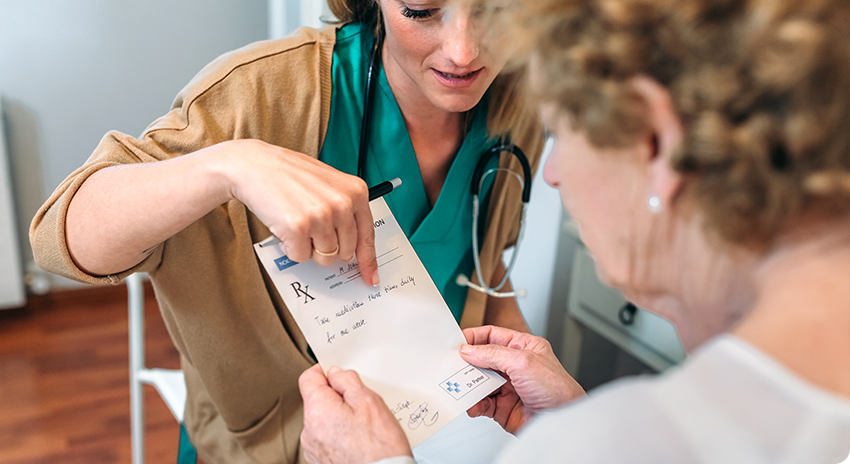This website uses cookies so that we can provide you with the best user experience possible. Cookie information is stored in your browser and performs functions such as recognising you when you return to our website and helping our team to understand which sections of the website you find most interesting and useful.
Home Care In Mishawaka, IN

They say that your golden years are the best years of your life. For most older Americans, that's how it should be - a time to relax, reflect, and live life in a familiar place. After all, senior citizens in the U.S. have worked tirelessly to build a better economy, serve their communities, and raise families.
However, as seniors grow older, completing daily tasks like showering and enjoying activities such as visiting the historic Princess Mishawaka gets harder without someone by their side. Unfortunately, many older Americans aren't able to rely on their adult children for help. The reality in today's world is that family members do not have the skills or time to dedicate to caring for their parents. That's where Always Best Care Senior Services comes in.
Our in-home care services are for people who prefer to stay at home as they grow older but need ongoing care that family or friends cannot provide. More and more older adults prefer to live far away from long-term, institutionalized facilities and closer to the place where they feel most comfortable - their home. Home care in Mishawaka, IN is a safe, effective way to give your loved ones the care they need when they need it the most.

 Home Care Services
Home Care Services
- Home Care in Mishawaka, IN
- The Always Best Care Difference
- Types of In-home Care in Mishawaka, IN
- Benefits of Home Care in Mishawaka, IN
- Aging in Place: The Preferred Choice for Most Seniors
- Affordable Care Plans
- Compassionate Care. Trusted Caregivers
- Assisted Living Referral Services
- Taking the First Step with Always Best Care
 Service Areas
Service Areas
The Always Best Care Difference
Since 1996, Always Best Care has provided non-medical in-home care for seniors to help them maintain a healthy lifestyle as they get older. We are proud to have helped more than 25,000 seniors maintain higher levels of dignity and respect. We focus on providing seniors with the highest level of in-home care available so that they may live happily and independently.
Unlike some senior care companies, we genuinely want to be included in our clients' lives. We believe that personalized care is always the better option over a "one size fits all" approach. To make sure our senior clients receive the best care possible, we pair them with compassionate caregivers who understand their unique needs. That way, they may provide care accordingly without compromising their wellbeing.
The Always Best Care difference lies in life's little moments - where compassionate care and trustworthy experience come together to help seniors live a fruitful, healthy life. Whether you are an aging adult that can't quite keep up with life's daily tasks or the child of a senior who needs regular in-home services, Always Best Care is here to help.
“Our mother was diagnosed with terminal cancer and immediately needed meds administered multiple times a”
“I have worked alongside Always Best Care and they have been amazing. Very quick”
“ABC is a great place to be! Thank you Patti, Stephanie, and Michele for all”
“Best Company I’ve ever encountered. I love how flexible and efficient they are. I love”
“Always Best Care has been exceptional the four years i’ve worked there. The staff and”
“I give always best care of 5 stars. They are caring and have a sincere”
“it is my pleasure to leave a review for the Coffee need that support the”
“I have worked with more home health agencies than I care to remember, both in”
“We used ABC several years ago for my dad, after he had a stroke. I”
“We used ABC several years ago for my dad, after he had a stroke. I”
“I love the company I think they really do care about the employee the residents”
“I love working for Always Best Care The staff is very helpful, encouraging wonderful, loving”
“Always Best Care gives great encouragement and support to their caregivers during any situation or”
“Stephanie Stevens is a great CSD! Thanks for all you do!”
“Always Best care is amazing!”
“Always Best Care is a great company. Not only do they provide the best care”
“We have used Always Best Care two different times for our Mother. Both times the”
“Hi my name is Linda and I've been working with always best care for 2”
“I have used quite a few different providers and ABC is by far the best”
“Always best care has always been there when I needed them! They make it convenient for”
“Great place to work at very professional and appreciative for their staff”
“Overall a great company to work for! They do a wonderful job recognizing caregivers; from”
“They really help people when they need it”
“I've had caregivers for about 5 years now. Only having been disappointed and frustrated. Since”
“Carole is an excellent caring professional. She has been extremely helpful in advising us and”
“Our mother was diagnosed with terminal cancer and immediately needed meds administered multiple times a day. After speaking to the independent living center where she resided, our family decided to hire Always Best Care for the meds (and then later for 24-hour aids). We cannot say enough about Darlene and Candy, as well as the numerous aids. Even at the end when our mom no longer needed the meds, they would often stop by to see her anyway. We generally do not give reviews of companies, but their caring approach was exceptional and we decided it was appropriate for others who need these services to know about our experience.”
“I have worked alongside Always Best Care and they have been amazing. Very quick to help out patients in need and staff is very polite and professional.”
“ABC is a great place to be! Thank you Patti, Stephanie, and Michele for all you do! You all are Awesome & thank you for the honors of being part of the team also acknowledging myself for Employee of the Month of March! You all are appreciated”
“Best Company I’ve ever encountered. I love how flexible and efficient they are. I love the open door policy. Michelle is my favorite schedule she does an amazing job with communication.”
“Always Best Care has been exceptional the four years i’ve worked there. The staff and schedulers, especially Michele, are helpful in finding compatibility for your clients, they’re also flexible in scheduling hours. Great company, great staff.”
“I give always best care of 5 stars. They are caring and have a sincere heart I love working with this agency..”
“it is my pleasure to leave a review for the Coffee need that support the most I would like Stephanie Kramer for supporting me and helping me get through my work schedules and feel comfortable at my place of employment. I am sad to see that she left Scheduling , but she still tries her best to help everyone even with her new position. Her dedication means everything I would like to Tasha as well for communicating with me so much I also cannot forget Patricia and Michelle as well. You ladies help me so much with my client. I greatly appreciate you ladies. I appreciate all of the hard work and dedication that you ladies have with meeting me halfway when it comes to our job it definitely makes everything much easier. Keep up the great work as well as the rest of the staff thank you ladies for everything that you do and congratulations Monique on your new position.”
“I have worked with more home health agencies than I care to remember, both in GA and MI, when I worked in healthcare; and I have to say that Always Best Care is one of the best home health care agencies that I have found since the early 90's !!! I have been a client with Always Best Care since February 2022 and I have been extremely pleased with the help I have received both from my caregivers and the office staff. All the staff work hard and the quality of care is exceptional!!! The few occasions that I didn't like a caregiver because of either poor work ethic or personality, Always Best Care always took care of finding another caregiver to better meet my needs ASAP!! When I first started with Always Best Care I did get a few caregivers that weren't a good fit. But, within a very short period of time my scheduler learned my specific needs and personality and she found caregivers for me that were a wonderful match!! As in every area of healthcare, the high turnover of employees is to be expected!!! But, Always Best Care has always made sure that I have a new caregiver that matches my needs and expectations!! I have and would, highly recommend Always Best Care for your home health daily care!!”
“We used ABC several years ago for my dad, after he had a stroke. I called a few months ago to set up a care plan for my elderly mom. She had a hip replaced, and lives alone. I knew we would feel better having someone there to help her and visit with her until she could get up and around on her own. ABC works through our scheduling nightmares (mom tends to send people home early, and tell them not to come back)….and they have been SO patient with our ever changing and increasing needs for mom. Their response time and communication are impeccable!!”
“We used ABC several years ago for my dad, after he had a stroke. I called a few months ago to set up a care plan for my elderly mom. She had a hip replaced, and lives alone. I knew we would feel better having someone there to help her and visit with her until she could get up and around on her own. ABC works through our scheduling nightmares (mom tends to send people home early, and tell them not to come back)….and they have been SO patient with our ever changing and increasing needs for mom. Their response time and communication are impeccable!!”
“I love the company I think they really do care about the employee the residents”
“I love working for Always Best Care The staff is very helpful, encouraging wonderful, loving family. Thank you for the opportunity of serving for your company thank you to Michelle, who is always looking out for me and making sure that I have the hours that I need.”
“Always Best Care gives great encouragement and support to their caregivers during any situation or time of need. The care and dedication to their staff is incredible and I throughly enjoy my time working along side them!”
“Stephanie Stevens is a great CSD! Thanks for all you do!”
“Always Best care is amazing!”
“Always Best Care is a great company. Not only do they provide the best care for their clients, but they go above and beyond for their staff as well.”
“We have used Always Best Care two different times for our Mother. Both times the care was excellent. I have referred Always Best Care to several people.”
“Hi my name is Linda and I've been working with always best care for 2 years now and it's a great atmosphere I like coming in to work meeting new people. It's a place that's kind friendly and it makes you feel at home it makes you feel that you're working with people that understand you know you're different needs your different hours and if something come up they are there to help you with anything that you need help with it's a great company I'm so glad I signed up with the company I signed up a little bit after the pandemic and I just needed somewhere that I could really consider myself at home or I find a home and I have I'm amazed at how the people are so nice when you talk to them on the phone how nice they are friendly you can tell this saying it with a smile I enjoy working there I tell people ask me where I work at always best care they like what yeah always best care yes it's a nice company sign up with it you won't regret it I'm glad I do it I'm really glad I did”
“I have used quite a few different providers and ABC is by far the best company. From the office staff to the caregivers, they are doing what they love and it shows.”
“Always best care has always been there when I needed them! They make it convenient for me to take care of my father. I most definitely recommend them!”
“Great place to work at very professional and appreciative for their staff”
“Overall a great company to work for! They do a wonderful job recognizing caregivers; from big recognition like a monthly caregiver award and random drawings, to small recognition such as any time you visit the office you are free to grab snacks, beverages, gear and more often than not there is some type of food they have ordered that is available. They really don’t hold back in this area! There has been quite a bit of changes made in office positions within the last year. Response time, outside of the scheduling department, can be improved upon.”
“They really help people when they need it”
“I've had caregivers for about 5 years now. Only having been disappointed and frustrated. Since Always Best Care came into my life, my worries have ended. I never knew if previous caregivers were going to show up, or do what I needed. Everytime they would complete a task, they would sit down and be on their phone. Kari and Jamisha finish a task and right to the next. No problems. My mind has been put at ease. They are very professional yet so so friendly. They ask, what else they can do for me. I also have my ABC emergency call button. Now I have peace of mind if an emergency should arise. My case coordinator Stephanie Stevens. Stays right on top of my case. Thank you so much for making my life easier. I have recommended your company to others that may need assistance in the future.”
“Carole is an excellent caring professional. She has been extremely helpful in advising us and in scheduling care. With respect to the caregivers, we have no complaints. We want to give a special thank you to Rhona for her time and effort in creating a special bond with our mother.”
What is Non-Medical Senior Care in Mishawaka, IN?

Home is where the heart is. While that saying can sound a tad cliche, it is especially true for many seniors living in America. When given a choice, older adults most often prefer to grow older at home. An AARP study found that three out of four adults over the age of 50 want to stay in their homes and communities as they age.

When you begin to think about why, it makes sense. Home offers a sense of security, comfort, and familiarity.

The truth is, as we age, we begin to rely on others for help. When a family is too busy or lives too far away to fulfill this role, in-home senior care is often the best solution. Home care services allow seniors to enjoy personal independence while also receiving trustworthy assistance from a trained caregiver.

At Always Best Care, we offer a comprehensive range of home care services to help seniors stay healthy while they get the help they need to remain independent. As your senior loved one gets older, giving them the gift of senior care is one of the best ways to show your love, even if you live far away.

Types of Elderly Care in Mishawaka, IN
To give our senior clients the best care possible, we offer a full spectrum of in-home care services:

Personal Care Services
If your senior loved one has specific care needs, our personal care services are a great choice to consider. Personal care includes the standard caregiving duties associated with companion care and includes help with tasks such as dressing and grooming. Personal care can also help individuals with chronic conditions like diabetes.
Common personal care services include assistance with:
- Eating
- Mobility Issues
- Incontinence
- Bathing
- Dressing
- Grooming


Home Helper Services
Sometimes, seniors need helpful reminders to maintain a high quality of life at home. If you or your senior has trouble with everyday tasks like cooking, our home helper services will be very beneficial.
Common home helper care services include assistance with:
- Medication Reminders
- Meal Preparation
- Pet Care
- Prescription Refills
- Morning Wake-Up
- Walking
- Reading


Companionship Services
Using this kind of care is a fantastic way to make life easier for you or your senior loved one. At Always Best Care, our talented caregivers often fill the role of a companion for seniors. That way, older adults can enjoy their favorite local activities, such as visiting Central Park with friends while also receiving the care they need daily or weekly.
Common companionship services include:
- Grocery Shopping
- Transportation to Appointments
- Nutritional Assistance
- Conversation
- Planning Outings
- Completing Errands
- Transportation to Community
- Events and Social Outings


Respite Care Services
According to AARP, more than 53 million adults living in the U.S. provide care to someone over 50 years old. Unfortunately, these caregivers experience stress, exhaustion, and even depression. Our respite care services help family caregivers address urgent obligations, spend time with their children, and enjoy nearby activities. Perhaps more importantly, respite care gives family members time to recharge and regroup. Taking personal time to de-stress reduces the risk of caregiver burnout. So, if you've always wanted to eat at the local Corndance Tavern or visit Mishawaka Historical Museum, don't feel bad. Doing so is great for both you and your loved one.
At the end of the day, our goal is to become a valuable part of your senior's daily routine. That way, we may help give them the highest quality of life possible. We know that staying at home is important for your loved one, and we are here to help make sure that is possible.
If you have been on the fence about non-medical home care, there has never been a better time than now to give your senior the care, assistance, and companionship they deserve.

Benefits of Home Care in Mishawaka, IN
Always Best Care in-home services are for older adults who prefer to stay at home but need ongoing care that friends and family cannot provide. In-home care is a safe, effective way for seniors to age gracefully in a familiar place and live independent, non-institutionalized lives. The benefits of non-medical home care are numerous. Here are just a few reasons to consider senior care services from Always Best Care:
Always Best Care offers a full array of care options for patients at all levels of health. With our trusted elderly care services, your loved one will receive the level of care necessary for them to enjoy the highest possible quality of life.
Request More Information
Aging in Place: The Preferred Choice for Most Seniors
While it's true that some seniors have complicated medical needs that prevent them from staying at home, aging in place is often the best arrangement for seniors and their families. With a trusted caregiver, seniors have the opportunity to live with a sense of dignity and do so as they see fit - something that is unavailable to many older people today.
In-home care makes it possible for millions of seniors to age in place every year. Rather than moving to a strange nursing home, seniors have the chance to stay at home where they feel the happiest and most comfortable.
Here are just a few of the reasons why older men and women prefer to age at home:
How much does a senior's home truly mean to them?
A study published by the American Society on Aging found that more than half of seniors say their home's emotional value means more than how much their home is worth in monetary value. It stands to reason, then, that a senior's home is where they want to grow old.
With the help of elderly care in Mishawaka, IN, seniors don't have to age in a sterilized care facility. Instead, they can age gracefully in the place they want to be most: their home. In contrast, seniors who move to a long-term care facility must adapt to new environments, new people, and new systems that the facility implements. At this stage in life, this kind of drastic change can be more harmful than helpful.
Institutional care facilities like nursing homes often put large groups of people together to live in one location. On any given day, dozens of staff members and caregivers run in and out of these facilities. Being around so many new people in a relatively small living environment can be dangerous for a seniors' health and wellbeing. When you consider that thousands of seniors passed away in nursing homes during the COVID-19 pandemic, opting for in-home care is often a safer, healthier choice for seniors.
Aging in place has been shown to improve seniors' quality of life, which helps boost physical health and also helps insulate them from viral and bacterial risks found in elderly living facilities.
For many seniors, the ability to live independently with assistance from a caregiver is a priceless option. With in-home care, seniors experience a higher level of independence and freedom - much more so than in other settings like a nursing home. When a senior has the chance to age in place, they get to live life on their own terms, inside the house that they helped make into a home. More independence means more control over their personal lives, too, which leads to increased levels of fulfillment, happiness, and personal gratification. Over time, these positive feelings can manifest into a healthier, longer life.
More independence, a healthier life, and increased comfort are only a few benefits of aging in place. You have to take into consideration the role of cost and convenience. Simply put, it's usually easier and more affordable to help seniors age in place than it is to move them into an institutional care facility. According to the US Department of Housing and Urban Development, seniors who age in the comfort of their homes can save thousands of dollars per month.
In-home care services from Always Best Care, for instance, are often less expensive than long-term solutions, which can cost upwards of six figures per year. To make matters worse, many residential care facilities are reluctant to accept long-term care insurance and other types of payment assistance.
With Always Best Care's home care services, seniors and their families have a greater level of control over their care plans. In-home care gives seniors the chance to form a bond with a trusted caregiver and also receive unmatched care that is catered to their needs. In long-term care facilities, seniors and their loved ones have much less control over their care plan and have less of a say in who provides their care.

Affordable Care
In-home care is a valuable resource that empowers seniors to age in place on their own terms. However, a big concern for many families and their loved ones is how much in-home care costs. If you're worried that in-home care is too expensive, you may be pleasantly surprised to learn that it is one of the most affordable senior care arrangements available.
Typically, hiring an Always Best Care in-home caregiver for a few hours a week is more affordable than sending your loved one to a long-term care facility. This is true even for seniors with more complex care needs.
At Always Best Care, we will work closely with you and your family to develop a Care Plan that not only meets your care needs, but your budget requirements, too. Once we discover the level of care that you or your senior need, we develop an in-home care plan that you can afford.
In addition to our flexible care options, families should also consider the following resources to help offset potential home care costs:

Compassionate Care. Trusted Caregivers.
When you or your senior loved one needs assistance managing daily tasks at home, finding a qualified caregiver can be challenging. It takes a special kind of person to provide reliable care for your senior loved one. However, a caregiver's role involves more than meal preparation and medication reminders. Many seniors rely on their caregivers for companionship, too.
Our companion care services give seniors the chance to socialize in a safe environment and engage in activities at home. These important efforts boost morale and provide much-needed relief from repetitive daily routines. A one-on-one, engaging conversation can sharpen seniors' minds and give them something in which to be excited.
At Always Best Care, we only hire care providers that we would trust to care for our own loved ones. Our senior caregivers in Mishawaka, IN understand how important it is to listen and communicate with their seniors. A seemingly small interaction, like a short hug goodbye, can make a major difference in a senior's day. Instead of battling against feelings of isolation, seniors begin to look forward to seeing their caregiver each week.
Understanding the nuances of senior care is just one of the reasons why our care providers are so great at their job.
Unlike some senior care companies, our caregivers must undergo extensive training before they work for Always Best Care. In addition, our caregivers receive ongoing training throughout the year. This training ensures that their standard of care matches up to the high standards we've come to expect. During this training, they will brush up on their communication skills, safety awareness, and symptom spotting. That way, your loved one receives the highest level of non-medical home care from day one.
Assisted Living Referral Services
While it's true that many seniors prefer to age at home, sometimes in-home care isn't the best fit. For those seniors and their families, choosing an assisted living facility makes more sense. Unfortunately, finding the optimal care facility is easier said than done in today's day and age. That's when Always Best Care's assisted living referral services begin to make a lot of sense.
Assisted living is a form of housing intended for seniors who require varying degrees of medical and personal attention. Accommodations may include single rooms, apartments, or shared living arrangements. Assisted living communities are typically designed to resemble a home-like environment and are physically constructed to encourage the independence of residents.

At assisted living communities, seniors receive help with daily activities such as bathing, dressing, and eating. They may also benefit from coordination of services with outside healthcare providers, and monitoring of resident activities to ensure their health, safety, and well-being. Caregivers who work at assisted living communities can also provide medication administration and personal care services for older adults.
Other services offered within assisted living communities can include some or all of the following:
- Housekeeping
- Laundry
- Recreational Activities
- Social Outings
- Emergency Medical Response
- Medication Monitoring
- Family Visitation
- Personal Care

At Always Best Care, our representatives can match your senior's emotional, physical, and financial needs with viable assisted living communities nearby. Results are based on comparative data, so you can select the best choice for you or your loved one.
Always Best Care works closely with local senior living communities to gain valuable knowledge that we then use to help seniors and their loved ones make informed decisions. This information can include basic care and rent, resident availability, and services provided. Because Always Best Care is compensated by these communities, we provide senior living referral services at no extra cost to you.
Some of the most popular assisted living communities to consider in our area include the following:
- Heritage Point Assisted Living and Memory Care
- Hellenic Senior Living of Mishawaka
- Primrose Retirement Community of Mishawaka
- Tanglewood Trace Senior Living
- Silver Birch of Mishawaka
- Cedarhurst of Edison Lakes

For many seniors, moving into a senior living community revolves around how and when they want to make a transition to more involved care. Some seniors are more proactive about transitioning to independent living. Others choose to remain home until their care needs or other requirements are satisfied. Remember - our staff is here to help. Contact our office today to learn more about assisted living communities and how we can find a facility that exceeds your expectations.

Taking the First Step with Always Best Care
The first step in getting quality in-home care starts with a personal consultation with an experienced Always Best Care Care Coordinator. This initial consultation is crucial for our team to learn more about you or your elderly loved one to discover the level of care required. Topics of this consultation typically include:
A discussion of your needs and how our trained caregivers can offer assistance in the most effective way

A draft of your care plan, which includes highly detailed notes and a framework for the care that you or your senior will receive

Discuss payment options and help coordinate billing with your insurance provider

Our caregivers are trained to spot changes that clients exhibit, like mental and physical decline. As your trusted senior care company, we will constantly assess and update your Care Plan to meet any new emotional, intellectual, physical, and emotional needs.
If you have never considered in-home care before, we understand that you and your family may have concerns about your Care Plan and its Care Coordinator. To help give you peace of mind, know that every team member and caregiver must undergo comprehensive training before being assigned to a Care Plan.
At the end of the day, we only hire the best of the best at Always Best Care. Whether you need home care in Mishawaka, IN 24-hours a day or only need a respite for a couple of hours, we are here to serve you.
When you're ready, we encourage you to contact your local Always Best Care representative to set up a Care Consultation. Our Care Coordinators would be happy to meet with you in person to get to know you better, discuss your needs, and help put together a personalized Care Plan specific to your needs.

Latest News in Mishawaka, IN
Dreaded lanternfly spotted in Elkhart and Mishawaka likely got here via rail
Ed Semmlerhttps://www.southbendtribune.com/story/news/local/2023/11/02/destructive-lanternfly-found-in-mishawaka-and-elkhart-by-railroad-line/71405297007/
An invasive moth-like insect that’s considered a threat to fruit orchards and nurseries as well as the logging and wine industries has been spotted in the Michiana area.The spotted lanternfly, which officials say could cause millions of dollars in damages if left unchecked, has been found in Elkhart, Mishawaka and Chesterton next to railroad lines moving through those cities, according to the ...
An invasive moth-like insect that’s considered a threat to fruit orchards and nurseries as well as the logging and wine industries has been spotted in the Michiana area.
The spotted lanternfly, which officials say could cause millions of dollars in damages if left unchecked, has been found in Elkhart, Mishawaka and Chesterton next to railroad lines moving through those cities, according to the Indiana Department of Natural Resources.
It’s the third region of the state where the invasive pest has been found.
The lanternfly was discovered in Switzerland County in the southeast portion of the state in 2021 and in Huntington County in the northeast in 2022. It’s also been located at a parcel of property in Pontiac, Mich.
The DNR said it is surveying those areas to determine the extent of the infestation. The site in Michigan is being contained by a team of specialists, according to the Michigan Invasive Species program.
Originating in Asia, the insect was first discovered in Pennsylvania in 2014 and is often unknowingly spread by humans. It’s now found in many eastern states as well as along the rail lines in Cincinnati, Columbus, Cleveland and Toledo in Ohio, and in Chicago, according to the DNR.
Natural resource officials in both states have been diligent about warning about the insects for the past several years because they can cause millions of dollars in damage. Management includes treatment and/or removal of invasive tree of heaven ? spotted lanternfly’s preferred host ? and regular surveying and monitoring of the insect population.
The adult insects have piercing, sucking mouthparts and weaken plants by feeding on them, making it difficult for the plant to survive the winter. Congregating spotted lanternfly insects produce large quantities of honeydew that over time become infested with sooty mold that attracts other pests in the area, further threatening native plants.
About an inch long, adult lanternflies have a somewhat exotic look with gray outer wings with dark spots and splashy hind wings that are red, white and black. It’s a bug that stands out for its size and appearance.
Nymphs are no longer than a half inch and are most visible May through September. They are wingless and beetle-like, first appearing black with white spots and developing red patches as they mature.
Egg masses resemble old chewing gum, with a gray, waxy, putty-like coating. Hatched eggs appear as brownish, seed-like deposits. They are most visible September through May, according to the Michigan Invasive Species Program.
Those spotting the lanternfly in Michigan are asked to take a picture, squish it and report it via its Eyes in the Field online form.
In Indiana, anyone who spots this insect or signs of it should contact the Indiana DNR Division of Entomology & Plant Pathology by calling 866-663-9684 or emailing [email protected].
Visit South Bend Mishawaka welcomed more than 5,200,000 visitors to St. Joe County in 2022
Jeff Jarneckehttps://www.southbendtribune.com/story/business/2023/08/27/jarnecke-visit-south-bend-mishawaka-bringing-the-best-to-the-bend/70643855007/
Ever have that weekend when you couldn’t park in your usual spot because of all these cars from different states?Maybe at the same time you saw a bunch of youth teams, flying pucks, soccer balls, batons or even juggling. That’s us.As the staff of Visit South Bend Mishawaka, part of the South Bend Regional Chambe...
Ever have that weekend when you couldn’t park in your usual spot because of all these cars from different states?
Maybe at the same time you saw a bunch of youth teams, flying pucks, soccer balls, batons or even juggling. That’s us.
As the staff of Visit South Bend Mishawaka, part of the South Bend Regional Chamber of Commerce, we promote events, bid on conventions and meetings, and attract visitors to St. Joseph County to experience all we have to offer. Last year, we welcomed more than 5,200,000 visitors who spent $1.2 billion!
A recent and unique example of what we do was on full display for a week in July throughout South Bend.
After a competitive bid process in 2019 that pitted us against many other cities around the country, more than 650 jugglers from across the globe came to South Bend for the 76th International Jugglers’ Festival.
The jugglers graced the stage at the Morris Performing Arts Center and held late evening performances in the Palais Royale. They hosted public demonstrations at Fridays by the Fountain and in the library. They even competed in jolleyball, a combination of volleyball and juggling.
Event organizers thanked us, saying they experienced a ”warm, welcoming hospitality from everyone they met” and hope to return potentially in 2028.
It’s hard to believe, but ice hockey season is right around the corner. Youth hockey, other than Notre Dame athletics, is the largest driver of sports tourism in our region. It accounts for more than 13,000 overnight hotel stays and $24 million of economic impact.
Youth hockey is doubly important in that most of the competitions take place from October to March when our general visitation is far less. Last year, kids from 17 states played at the Compton Family Ice Arena and the Ice Box Skating Rink.
Our research shows more than 53% of visitors to the county come because of Notre Dame. Yet we have so many other attractions — Ironworks Plaza, Howard Park, Potawatomi Zoo, Newton Park, St. Patrick’s County Park and more — that make our visitors’ experiences even better.
We are excited to welcome two new attractions next year: The Indiana Dinosaur Museum and Mishawaka Fieldhouse. These facilities will be incredible additions to our county and will provide not-to-miss experiences. There are also planned improvements at the Ice Box and Indiana Invaders Athletic Complex.
Generally, visitors coming to experience the area live within a one-tank-getaway radius and most come from Chicago and Indianapolis. While learning of our area from our robust marketing efforts, they stay at one of our 54 hotels that offer more than 5,400 rooms.
Even more, St. Joseph County has more than 1,300 private homes that are available on platforms like VRBO and Airbnb. We expect more than 1 million room nights stayed by visitors in our hotels and nearly 100,000 at private residences this year.
The resulting impact of these visits provides funding to help operate Potawatomi Zoo, Mishawaka Fieldhouse, Morris Performing Arts Center, Century Center and our operation at Visit South Bend Mishawaka. The proceeds also go toward the tourism capital investment fund, which is dedicated to investing in hospitality product throughout St. Joseph County.
Once a month, on the fourth Sunday, we will use this column to share some of the exciting events and experiences for both visitors and residents alike. From Walkerton to Osceola, Lakeville to Roseland, New Carlisle, Mishawaka and South Bend, there’s so much to see and even more to do!
Visit South Bend Mishawaka is here to help tell our story, highlight the incredible experiences and bring the best to The Bend. Here are a few highlights of events in The Bend. To see more, visit us at visitsouthbend.com.
Plan your detours! 10 significant road projects in the South Bend area this summer
Camille Sarabiahttps://www.southbendtribune.com/story/news/local/2025/06/05/what-to-know-about-10-large-road-projects-in-south-bend-this-summer/83724518007/
Road construction kicks into high gear in the summer time as local government undertakes street projects to make repairs and improve overall road safety.The Tribune compiled a list of significant road projects — some lasting months —determined by the size, length and cost of the project. These projects don't include standard street pavings, including ...
Road construction kicks into high gear in the summer time as local government undertakes street projects to make repairs and improve overall road safety.
The Tribune compiled a list of significant road projects — some lasting months —determined by the size, length and cost of the project. These projects don't include standard street pavings, including 12 in Mishawaka and over 90 in South Bend, that typically take a week or less.
Here's what to know about summer road projects in the St. Joseph County area.
South Bend
? Mishawaka Avenue Streetscape Project
When: Now to end of September
Cost: $3.2 million
In this two-phrase project, new curbs and sidewalks, new water main and storm sewers, new lighting, landscaping and street resurfacing will be coming to Mishawaka Avenue between Longfellow and Emerson avenues. Phase one — expected to end in early August — focuses on the south side of Mishawaka Avenue while phase two — expected to end in early August — focuses on north Mishawaka Avenue.
During construction, Mishawaka Avenue will be reduced to one westbound lane with cross streets and the eastbound Mishawaka Avenue ramp from Eddy Street/State Road 23 closed. Eastbound traffic will be detoured to Sample Street to Lincoln Way East to Twyckenham Drive.
? Ewing Avenue
When: Now to end of July
Cost: $1.3 million
In phase one, Ewing Avenue from Gertrude Street to Kemble Avenue will be closed through early June to install a new 10-foot multipurpose path and curbs on the south side of Ewing Avenue, raised intersections and pedestrian safety bumpouts at the Walker Field shelter house and at Webster and Walnut streets, and a new pedestrian and bicycle entrance to Rum Village Park. Motorists are advised to take Dubail and Prairie avenues as detours. In phase two, projected to be complete by the end of July, a new staircase and ramp connection to Rum Village Park will be installed. The city hopes construction improvements to Ewing Avenue will improve safety and to serve as a connector between Walker Field and Rum Village Park.
? Ireland Road and Ironwood Drive intersection
When: Now to early July
Cost: $1.8 million
The construction, divided into six phases, includes full reconstruction of the pavement, curb realignment and upgraded traffic signals. The project, which is entering its fifth phase, will work on the southeast corner of the intersection. Each phase is expected to take 21 days with weather permitting.
The city announces details of each phase as it begins.
During phase five of construction, northbound traffic on Ironwood Drive will not be able to turn right onto Ireland Road. Rather, a detour will direct traffic north on Ironwood Drive, east on Lincoln Way East, then south on Church Street to reconnect with Ireland Road.
Mishawaka
? Cedar Street bridge closures
When: Now to early July
Cost: $7.9 million
The Cedar Street bridge refurbishments are part of phase one of the riverwalk expansion by connecting the north and south sides of the riverwalk. Construction includes new decking, a widened multi-use pathway, constructing a pathway under the bridge with stair access from Edgewater Drive, a new connection to Marvin's Garden, upgraded lighting and railing, a flashing pedestrian crossing at Cedar Street and St. Joseph County bridge maintenance. In phase two, the bridge will close April 1 and reopen in September 2025. Traffic is directed to the Main Street bridge using Lincolnway East and Mishawaka Avenue.
St. Joseph County
? Cleveland and Beech roads roundabout
When: June 9 to October
Cost: $3,491,555, with 80% paid for by the federal government and 20% locally
In the relocation of NIPSCO, construction crews will construct a roundabout, which will close the intersection for a few months. Motorists should expect delays along Cleveland Road, between Buckeye Road and Ash Road, and along with Beech Road, from the south end of the bridge over the Toll Road to 500 to 700 feet south of Cleveland Road.
? Rehabilitation of Mayflower Road bridge
When: Now to end of 2025, mid-2026
Cost: Rail line bridge — $5,278,000, with 80% paid for by the federal government and 20% locally; Ardmore Trail bridge — $2,224,000
Mayflower Road, from Fillmore Road to Edison Road, is closed due the rehabilitation of two bridges being built simultaneously, The Tribune's reporting partners at WNDU-TV said. One bridge rehabilitation is over the South Shore Line — ran by the Northern Indiana Commuter Transportation District — and Norfolk Southern railroad line and will be completed by the end of 2025. A second bridge rehabilitation is over Ardmore Trail and is projected to be completed by mid-2026. Mayflower Road is closed to traffic until both bridges are completed.
? Main Street Bridge and Indiana Toll Road Preservation Project
When: Now to October
Cost: $2.38 million
In phase one of a two-phase project, the northbound lanes of Main Street are closed between Indian Ridge Boulevard and University Drive over the Indiana Toll Road as the Main Street bridge undergoes preventative maintenance. For a detour, Grape Road can be accessed at University Drive or Douglas Road for north and south travel.
When the northbound lanes reopen sometime in July, the southbound lanes will close until the project is completed in mid-October.
? Edison Road gravity sewer and road replacement
When: June 2 to mid-2026
Cost: $8 million
Edison Road, from Smilax Road to Larrison Drive, will be closed from June 2 to the end of 2025. In an effort to provide utilities to the Indiana Enterprise Center area — east of New Carlisle and west of South Bend — the project will provide municipal utilities water and sewer as well as private utilities American Electric Power gas and fiber. While a sewer is being installed, the road will be widened to add a center turn lane from Larrison Drive to Smilax Road. Drivers can utilize Walnut Road between U.S. 20 and Edison Road for detour.
The Indiana Department of Transportation will is continuing expansion and restructuring projects on roads it maintains.
? Indiana 2 and Larrison Boulevard resurfacing
When: Now to mid-November
Cost: $29.22 million
The expansion of the intersection at Indiana 2 and Larrison Boulevard is continuing a repaving project to accommodate extra traffic impacted by the electric vehicle battery plant construction northwest of the intersection. The Tribune previously reported that Indiana 2’s repaving and the intersection improvements will continue through late November, but won't result in any full closures of the highway with at least one lane open in each direction. The total cost includes the resurfacing from the U.S. 20/Indiana-2 dogbone interchange to the U.S. 20/31 bypass and a small structure replacement within that section. Improvements were also made to intersection of State Road 2 and Larrison Road.
? Indiana 23 pipe lining project
When: June 9 to June 27
Cost: $474,848
The right lane of Indiana 23, between U.S. 20 and New Energy Drive, will be closed for a pipe lining project.
Mishawaka Common Council takes a step toward new affordable housing despite concerns from neighbors
Natacha Casalhttps://www.wndu.com/2025/06/03/mishawaka-common-council-takes-step-toward-new-affordable-housing-despite-concerns-neighbors/
MISHAWAKA, Ind. (WNDU) - The need for affordable housing is growing everywhere. That includes Mishawaka.And on Monday night, the Mishawaka Common Council took a step toward adding some affordable housing to the city.To build that affordable housing, the city first needed to rezone two addresses from general commercial to multifamily residential.Not everybody was in favor of that move. The hot topic at the meeting was rezoning.Developer Seth Freed presented a plan to build seven residential buildings with 20 dwelli...
MISHAWAKA, Ind. (WNDU) - The need for affordable housing is growing everywhere. That includes Mishawaka.
And on Monday night, the Mishawaka Common Council took a step toward adding some affordable housing to the city.
To build that affordable housing, the city first needed to rezone two addresses from general commercial to multifamily residential.
Not everybody was in favor of that move. The hot topic at the meeting was rezoning.
Developer Seth Freed presented a plan to build seven residential buildings with 20 dwellings to help meet Mishawaka’s growing demand for affordable housing.
The two addresses for the development were zoned commercial and required rezoning for residential use.
“Everything would either be for rent or for sale. We would not do a rent to own on either the north or the south,” Freed said.
Some residents from Town and Country, a neighboring residential area, shared financial and safety concerns.
“How is that going to affect Town and Country’s property taxes? Mine have already doubled, actually tripled, since I first bought in there,” said Dana Wilson, a Town and Country resident.
Another Town and Country resident, Paul Kelly, said that he loves Mishawaka and is not sure if Mishawaka needs another neighborhood.
“I love Mishawaka, I mean the parks are incredible. I mean I love this town, Mayor Wood, so I think they have all done a great job, but this is just not a place where Mishawaka needs the next family neighborhood. It just doesn’t fit. It’s risky. It’s not worth it,” Kelly said.
Council members applauded the Town and Country residents who made their voices heard but ultimately voted to rezone for residential use 8-1.
This was the second reading of the rezoning proposal, so it now moves forward.
The next meeting is scheduled for June 16.
Copyright 2025 WNDU. All rights reserved.
Disclaimer:


 574-232-8487
574-232-8487





